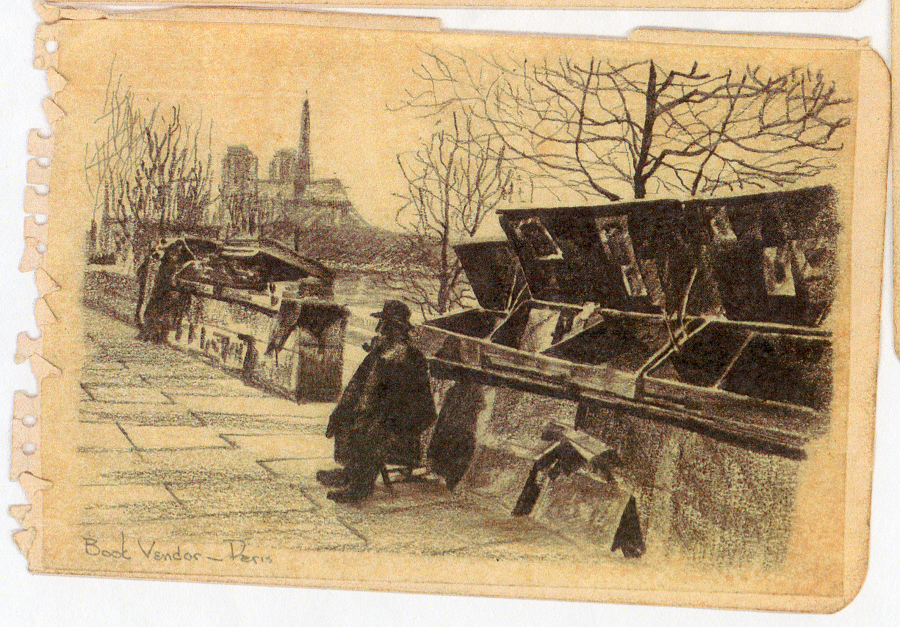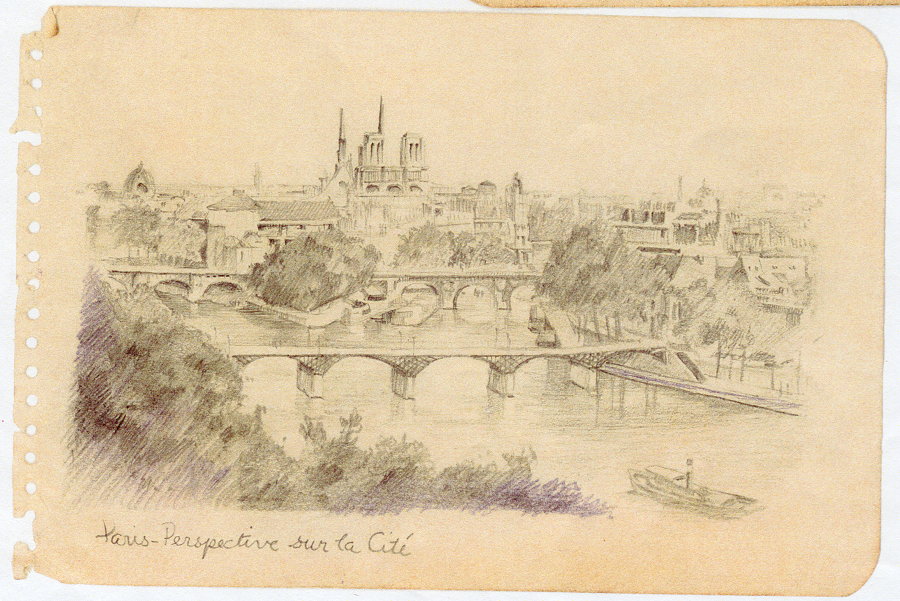 Research portals below link to existing oral history and media collections within the Veterans History Project, including SPOHP’s first documentary, “I Just Wanted to Live!” and 300+ oral histories conducted over the last 10 years.
Research portals below link to existing oral history and media collections within the Veterans History Project, including SPOHP’s first documentary, “I Just Wanted to Live!” and 300+ oral histories conducted over the last 10 years.
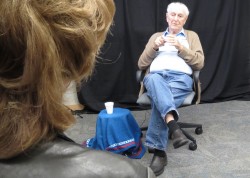 Oral History Interviews with World War II Veterans
Oral History Interviews with World War II Veterans
The World War II oral history collections in the Veterans History Project archive are uniquely diverse, focusing on military service and also life on the home front and in war zones. Veterans interviewed fought in Atlantic and Pacific theaters, liberated Nazi concentration camps, were held captive as prisoners of war during the Bataan Death March, and more. Also in the collection are stories of life on the home front, remembered by women, and for civilians in the midst of war, remembered by Germans who grew up on the front lines.
- Watch WWII 017 with Frank Towers, describing his service in Europe and the process of liberation 2,500 Jews destined for concentration camps near Magdeburg, Germany, now available on YouTube!
Browse: Over 75 VHP interviews are available online through the Library of Congress. Oral history interviews for the African American History Project are currently undergoing processing, and audio is available to access through the Samuel Proctor Oral History Program offices. All collected interviews will eventually be archived at both the Samuel Proctor Oral History Program and Library of Congress.
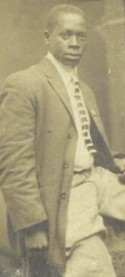
Honoring African Americans in the Military, 2013
SPOHP’s celebration of Veterans Day in 2013 focused on recognizing and honoring African American military service throughout U.S. history, highlighting the obstacles many veterans faced to securing access to jobs, housing, and education in the segregated United States.
Alonzo Felder, wrote a remembrance in honor of his grandfather, Ned Felder, for Veterans Day. Ned Felder’s regiment, the 367th, was one of the most highly decorated infantry regiments in American history, awarded the distinguished the Croix de Guerre by the French government. Ned was one of over 370,000 African Americans who served in the war. His experience as an African American serving abroad, returning home to see his service disregarded in the segregated United States, and unable to secure adequate treatment for what his family believes to be PTSD, is recounted in the narrative, “The Life of Ned Felder, World War I Veteran.” (PDF)
Read more about regiments like Felder’s in E.J. Scott’s “The American Negro in the World War,” Chapter XIII, available online from Brigham Young University.
It was over 90 years ago, but Ned Felder, like most men, had hopes and aspirations; he lived 16, 113 troubled days; and then died in despair…Little is said of the sacrifice of colored troops. After WWI Ned marries my grandmother. Their only child, my mom, remembered “we won the war, but lost the man.”
–Alonzo Felder
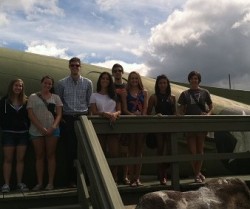 World War II Topics Guide by Fall 2014 Internship Class
World War II Topics Guide by Fall 2014 Internship Class
The Fall 2014 internship class, taught by Graduate Coordinators Jessica Taylor and Matt Simmons, highlighted topics in the Veterans History World War II Collections, illuminating broad themes through specific interviews and experiences.
World War II Topics Guide
Read VHP WWII Collection Topics (2014), now online with audio and interview information.
Browse: Research subjects include the following –
- Deciding To Join, by Caitlyn Ross with Coy Easter, WWII-109
- Training, by Patrick Daglaris with Morgan Welch, WWII-230
- Women Contributing to the War Effort, by Christian Wanamaker with Alvina Bowen, WWII-201
- Segregation, by Jasmine Reynolds with Joseph Welch, AAHP-303
- Faith, by Arielle Heinke with Colen Thomas, WWII-057
- Letters to Home, by Mariah Justice, with Robert Molosso, WWII-218
- Behind Enemy Lines, by Virginia Hamrick, with Edward Wackowski, WWII-135
- Mortality, by Austyn Szempruch, with Leo McCracken, WWII-070
- Nursing, by Brittney Mejia, with Pauline Pepper, WWII-077
- Fighting An Enemy, by Maria Fuentes with Bill Cross, WWII-021
- Prisoners of War, by Steven Houston with Herbert Pepper, WWII-030
- Occupations, by Bruce Hunt with Howard Long, WWII-200
- The Soldier Artist: Representations of a Soldier’s Role in the European Front, by Annemarie Nichols with Frank Blair Reeves, UF-340
The goal of our semester’s work is to take you through the history of World War II through the eyes of the average American soldier . . . listening to war experiences from a veteran’s perspective also alters our traditional thinking about the chronology of World War II, defined by major operations, titan generals, and the Axis and Allies.
-Jessica Taylor, Graduate Coordinator
“I Just Wanted to Live!” Documentary Film
In 2008, SPOHP took several oral histories off the archival shelves and turned them into living history by making a documentary titled “I Just Wanted to Live!” The documentary is now housed in three major museums and the Library of Congress Veterans History Project. The documentary is based on the oral histories of four men who were P.O.W.s, held for more than three years by the Japanese during World War II. These men, as well as the rest of the U.S.-Filipino forces, had barely survived the three-month Battle of Bataan in the Philippines. They fought with minimal food rations and inadequate ammunition against a well-supplied Japanese army.
Following General Edward King’s surrender of his troops (60,000 Filipinos and 15,000 Americans) on April 9, 1942, these men suffered the extreme brutality of the nine-day, 70-mile Bataan Death March, and then the horrific internment camps of O’Donnell and Cabanatuan. Arguably, however, the most nightmarish part of these POWs’ ordeal was being crammed into the so-called Japanese “Hell Ships.” Then, having endured all this inhumane treatment, the prisoners became slave laborers in Japan for the remainder of the war.
Browse: Contact the Samuel Proctor Oral History Program to request a copy of “I Just Wanted to Live!” To view additional documentaries and workshops, search the SPOHP YouTube account.
For additional information, contact SPOHP, call the offices at (352) 392-7168, and connect with us online today.
